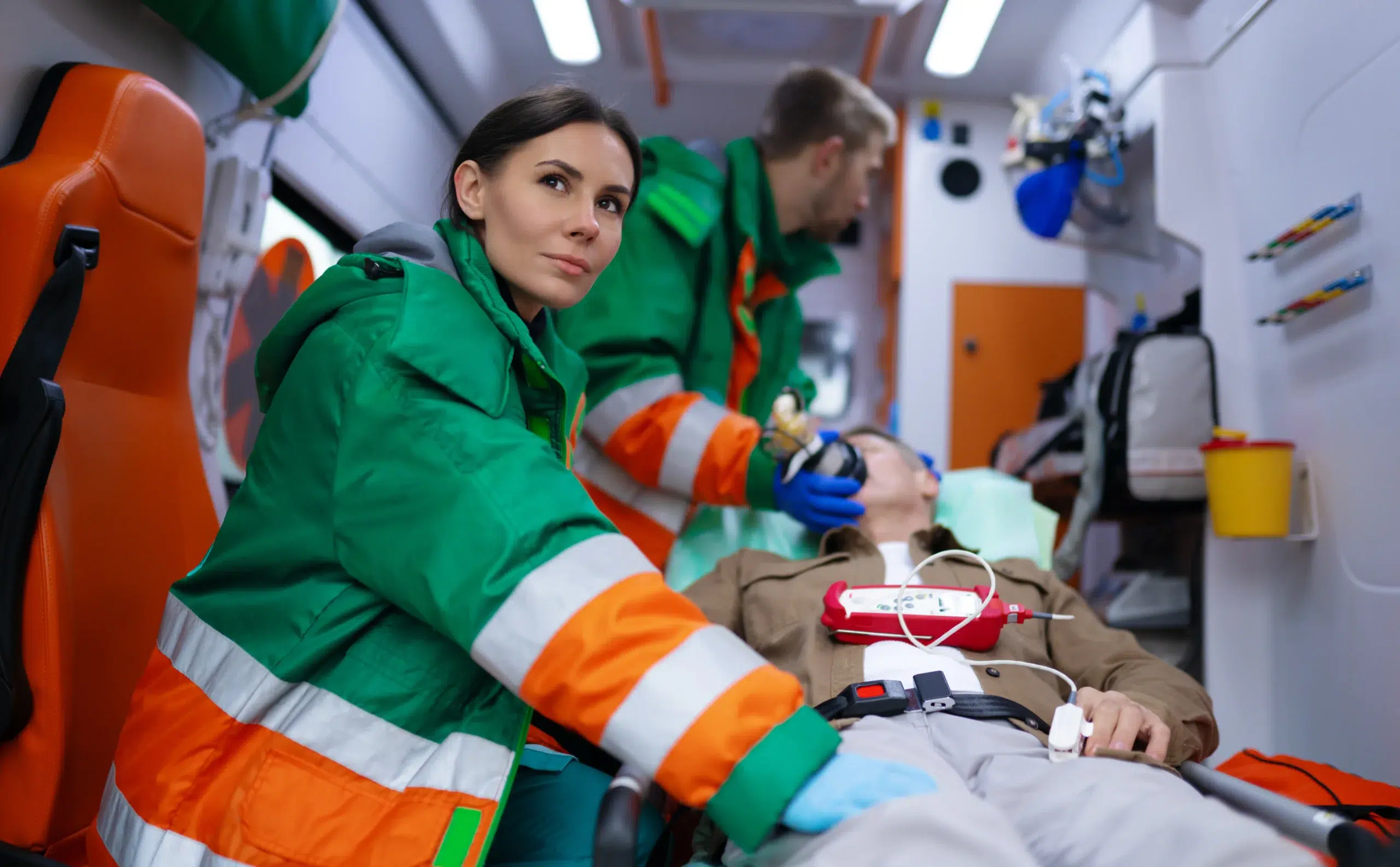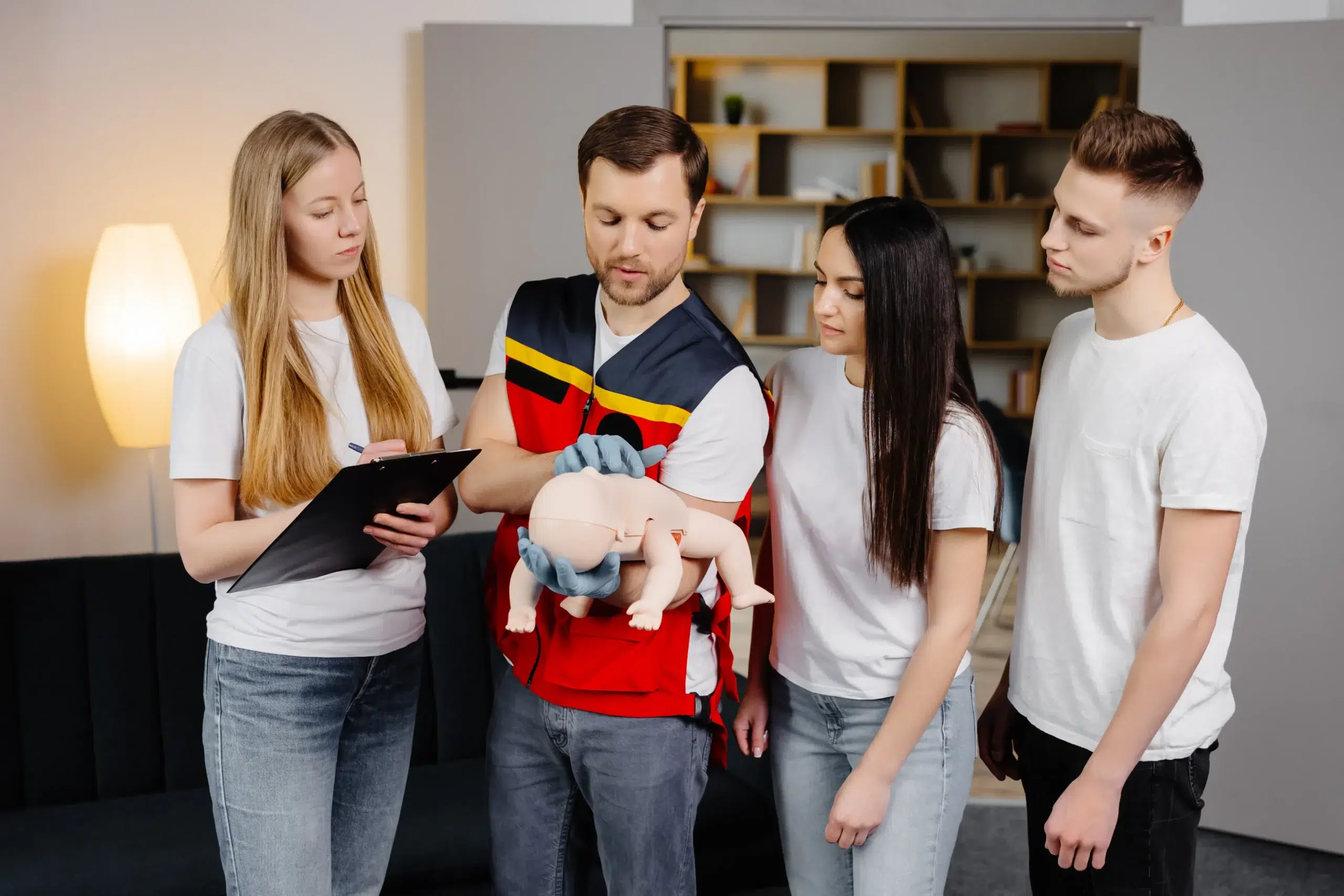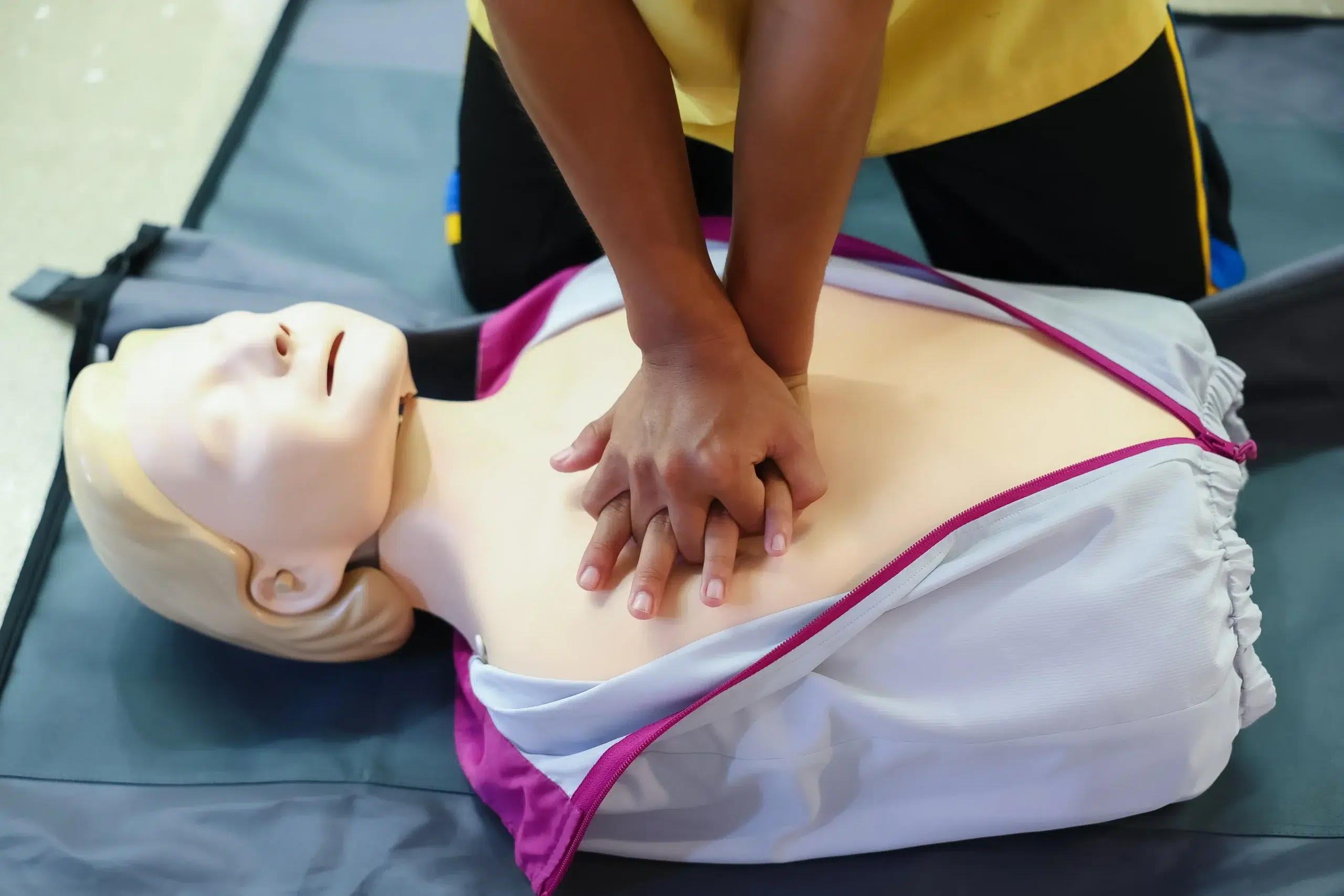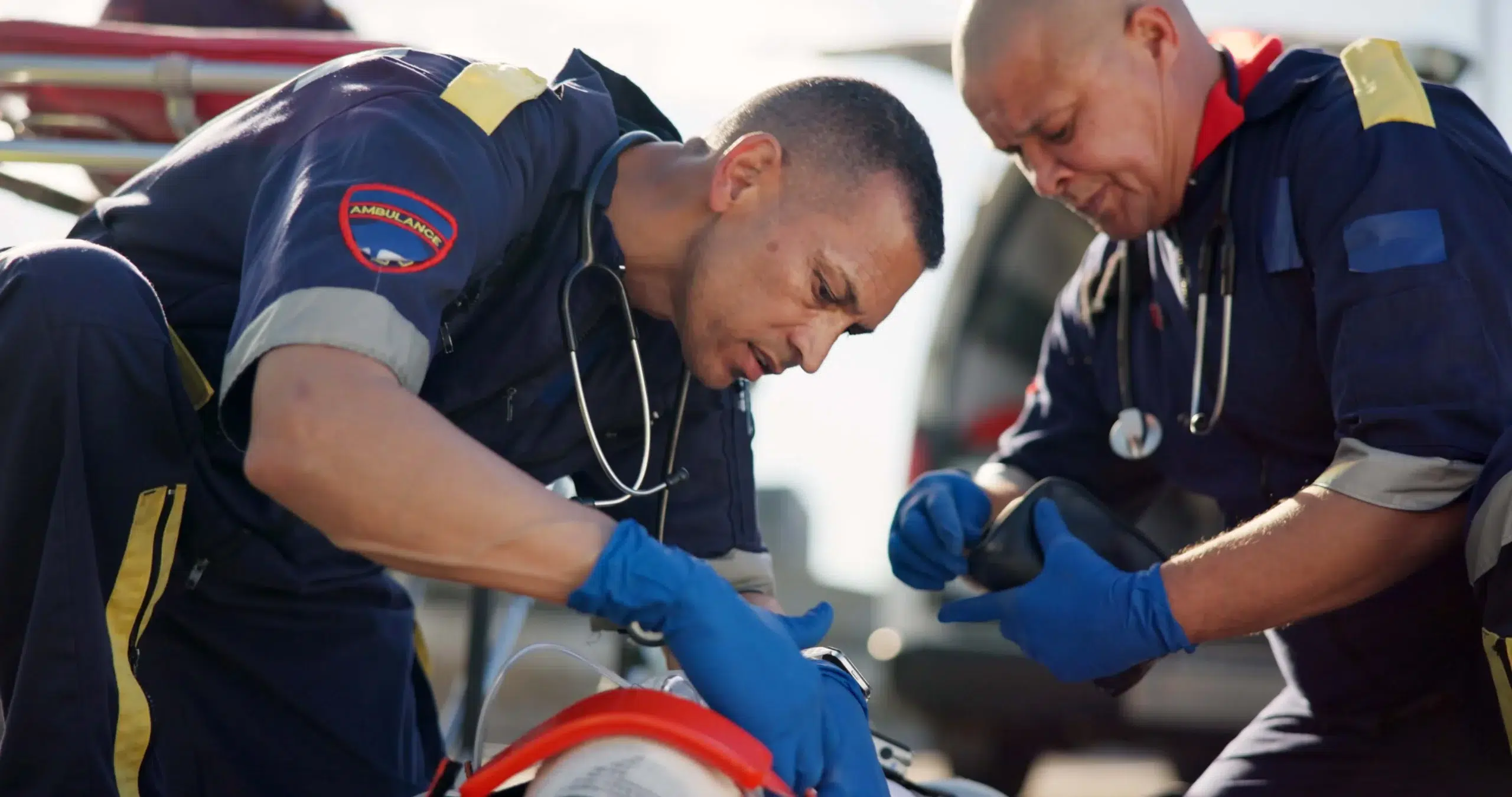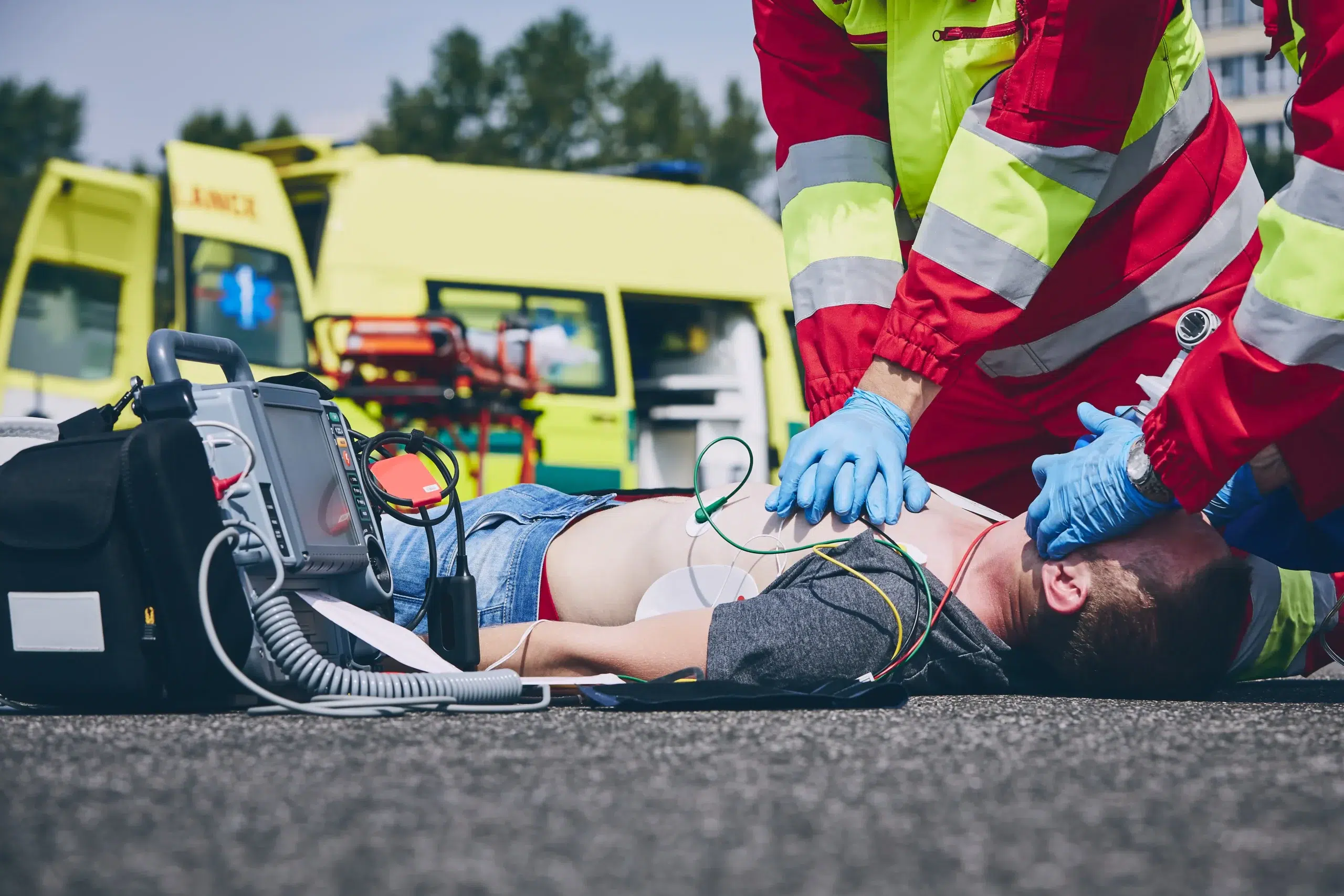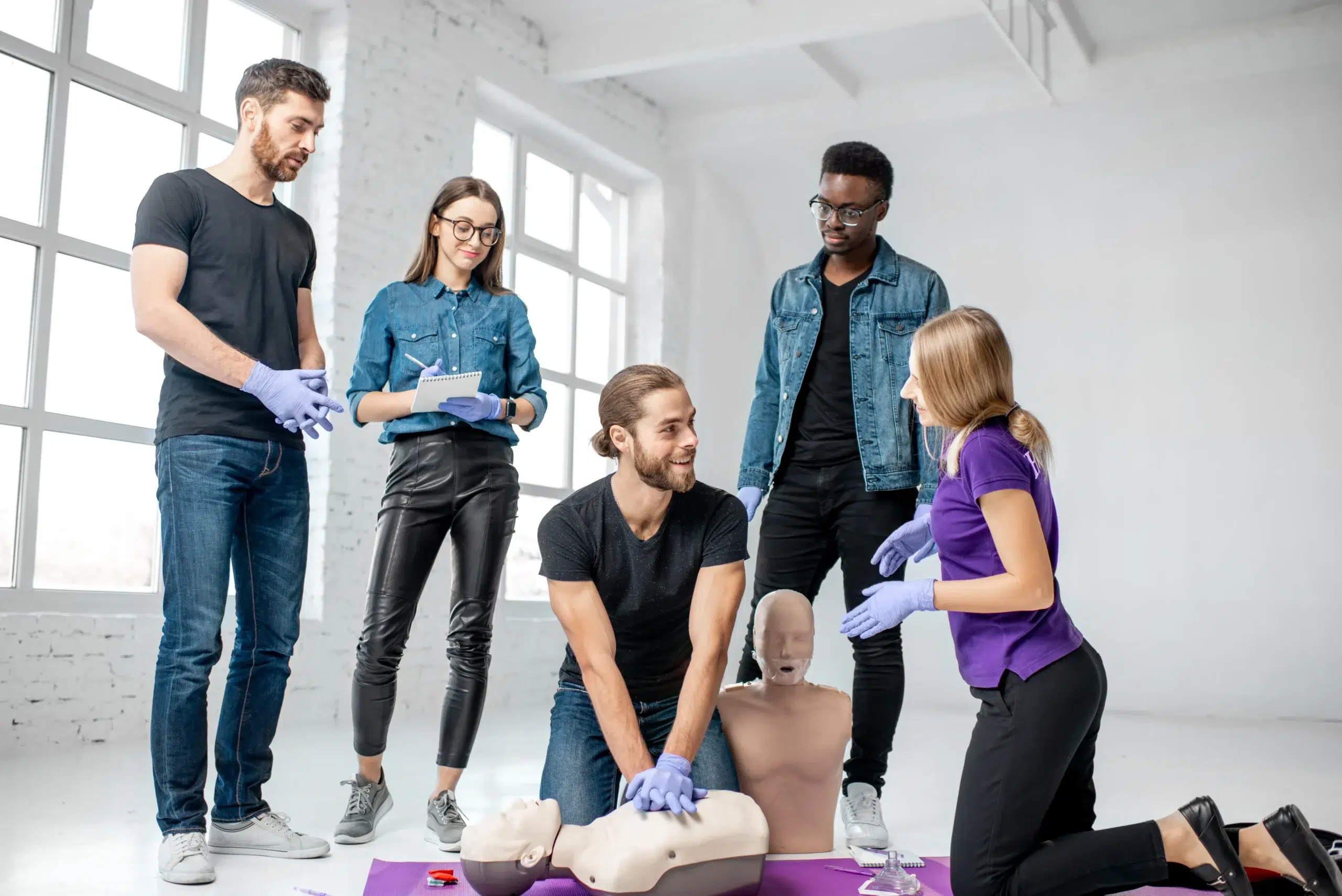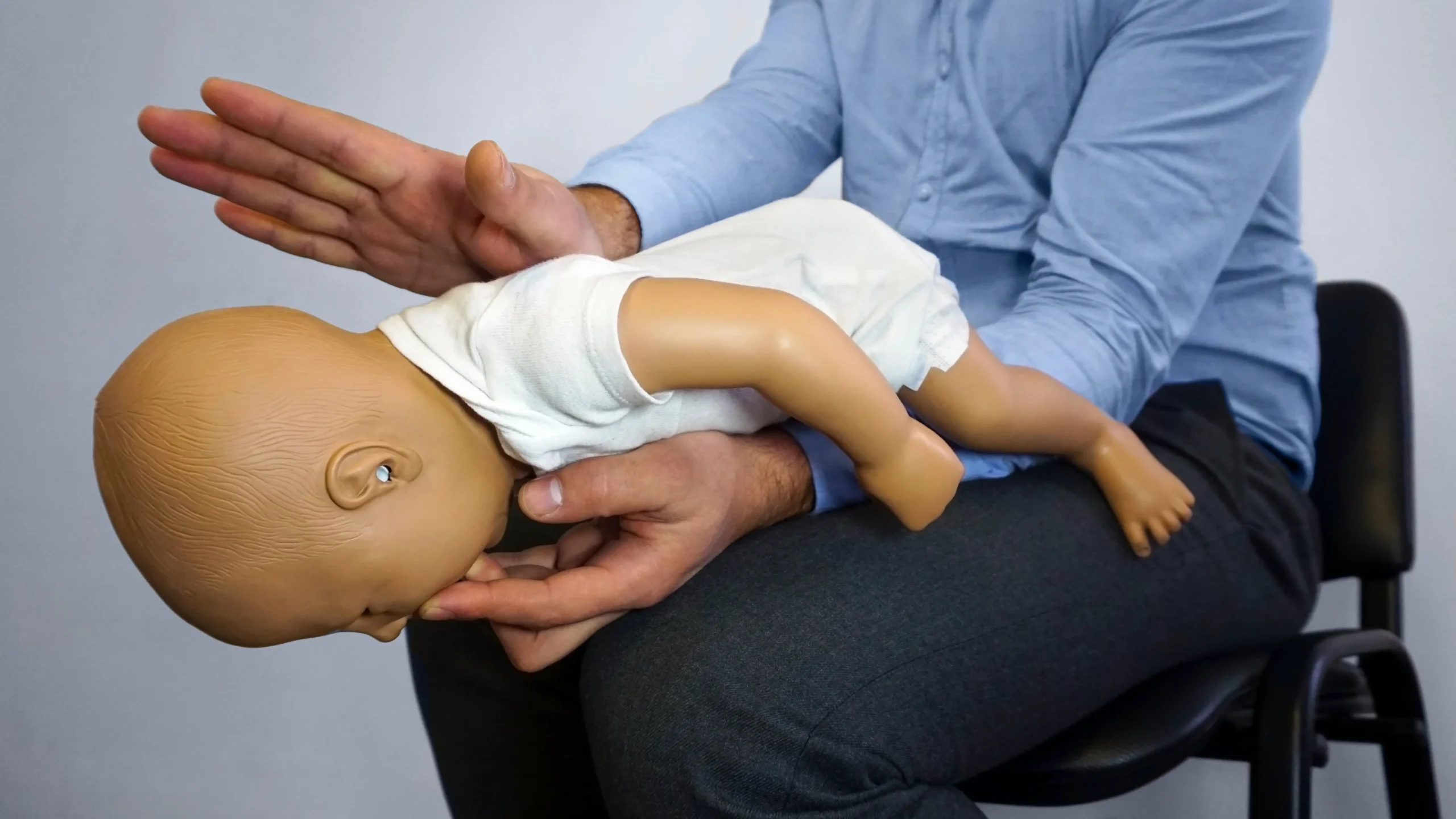As a healthcare provider, your commitment to patient care extends beyond routine checkups and treatments. It includes being prepared for any situation, especially when it comes to the youngest and most vulnerable patients. Pediatric Advanced Life Support (PALS) training equips you with the skills and confidence to handle pediatric emergencies effectively. This article will guide you through the essentials of PALS, from understanding the core concepts to finding pediatric advanced life support in Newark and getting certified. We’ll discuss the importance of PALS training, explore the various course options available, and address common questions about the certification process. Join us as we delve into the world of PALS and empower you to provide the best possible care for children in need.
Key Takeaways
- PALS training provides essential skills for pediatric emergencies: Learn a systematic approach to assessment, treatment, and stabilization, from basic life support to advanced techniques. Hands-on simulations build confidence and reinforce learning.
- Find the right PALS course for your needs: Consider factors like learning style, schedule, and budget when selecting a program. Explore options like blended learning and look for providers offering discounts and a low price guarantee.
- PALS certification advances careers and improves patient care: This valuable credential demonstrates your commitment to specialized pediatric care, opening doors to new opportunities while enhancing the quality of care you provide.
What is Pediatric Advanced Life Support (PALS)?
What is PALS?
Pediatric Advanced Life Support (PALS) is a specialized course designed to give healthcare providers the skills they need to respond to life-threatening emergencies in infants and children. The course focuses on a systematic approach to quickly assess and address critical situations.
Why is PALS important for healthcare professionals working with children?
PALS training is essential for any healthcare provider working with young patients. It provides the advanced knowledge and practical skills necessary to recognize and manage pediatric emergencies. This specialized training can significantly improve the quality of care and potentially save lives. A team trained in PALS ensures a coordinated and effective response in critical situations. For more information on who needs PALS certification, check out this helpful resource on PALS Certification.
Key skills and techniques taught in PALS courses
PALS courses cover a range of essential skills, from recognizing the signs of a deteriorating pediatric patient to performing high-quality CPR. Participants learn how to use specialized equipment, administer medications, and manage respiratory and cardiac emergencies. Effective resuscitation techniques are a core component, along with post-cardiac arrest care. The training also emphasizes the importance of clear communication and teamwork during emergencies. You can learn more about the specifics of PALS training and what it covers from RWJBH.
PALS Training Courses in Newark
PALS courses in Newark adhere to the American Heart Association’s guidelines, equipping healthcare providers with the skills to confidently manage pediatric emergencies. Safety Training Seminars offers PALS certification courses right here in Newark, CA.
What do PALS courses cover?
PALS courses cover essential topics for handling pediatric emergencies. The curriculum emphasizes a systematic approach to pediatric assessment, starting with quickly identifying life-threatening issues. Airway management and breathing interventions are key components, teaching participants how to secure a child’s airway and manage respiratory distress. PALS training also covers recognizing and treating cardiac emergencies, including arrhythmias and cardiac arrest.
Course duration and format options
PALS courses typically combine online learning with in-person skills sessions. The online portion lets participants learn core material at their own pace, while in-person sessions focus on hands-on practice and simulations. This blended learning approach helps students learn the material and develop their skills. Check with your chosen provider, like Safety Training Seminars, for specific schedules and formats.
Hands-on simulations
Realistic simulations are a crucial part of PALS training. These simulations offer a safe environment to practice skills in a controlled setting. Working through simulated pediatric emergencies builds confidence and reinforces the systematic approach taught in the course. These scenarios often involve teamwork, further developing communication and coordination skills.
Team dynamics and communication training
Effective teamwork and communication are vital in emergencies. PALS courses incorporate training on team dynamics, emphasizing clear communication, role assignment, and collaborative decision-making. These skills are essential for coordinating efforts during a pediatric emergency and ensuring the best possible patient outcome. Safety Training Seminars offers group discounts, making it affordable for teams to train together.
Preparing for a PALS Course
Getting ready for a PALS course involves a few key steps. Understanding these prerequisites will help you feel confident and prepared on day one.
Required qualifications and experience
Before enrolling in a Pediatric Advanced Life Support (PALS) course, you should have a basic understanding of electrocardiograms (EKGs) and common medications used in pediatric emergencies. A strong foundation in these areas will help you grasp the advanced concepts presented in the course. You’ll also need to pass an online pre-test to demonstrate your baseline knowledge.
Pre-course study materials and online pre-test
The PALS course follows the 2020 American Heart Association (AHA) Guidelines for Cardiopulmonary Resuscitation (CPR) and Emergency Cardiovascular Care (ECC). These guidelines emphasize a systematic approach to pediatric assessment, from basic life support to advanced treatment and teamwork. Familiarizing yourself with this information before the course will give you a head start. The required online pre-test covers this material and helps confirm your readiness.
Essential equipment and resources
You’ll need a PALS Provider Manual, which serves as the course textbook. You can choose between a print version or a convenient ebook. This manual is essential for studying and following along during the course. The PALS course typically takes between 12 and 16 hours and concludes with a 50-question exam. You’ll need to score at least 80% to earn your PALS certification.
Getting PALS Certified
Steps to get certified
PALS (Pediatric Advanced Life Support) certification is essential for healthcare providers working with infants and children. It equips you with life-saving skills for pediatric emergencies. The first step is enrolling in a PALS course from an accredited training center, like Safety Training Seminars. Our PALS courses in Newark follow American Heart Association standards. After the course, you’ll take a written exam and a hands-on skills assessment. Successful completion of both earns you your PALS certification.
Renewal requirements
PALS certification is valid for two years. To stay current and maintain your credentials, renew your certification before it expires. Renewal usually involves a PALS renewal course, covering guideline updates and reinforcing key skills. This ensures you can continue providing high-quality care. You can find more information on PALS renewal requirements from various providers.
Assessments and testing
The PALS course takes 12–16 hours, including classroom learning and hands-on practice. The certification exam has about 50 multiple-choice questions, testing your knowledge. A passing score is 80% or higher. The exam covers pediatric assessment, CPR, managing respiratory and circulatory problems, and using specialized equipment. You’ll also have a practical skills test with simulated pediatric emergencies, where you’ll apply your knowledge and demonstrate teamwork. These assessments ensure you’re ready for real-life situations.
Registering for PALS Training in Newark
How to sign up
Ready to enroll in a Pediatric Advanced Life Support (PALS) course? You can find PALS training through various providers, including the CPR Training Center at Newark Beth Israel Medical Center. These courses typically involve classroom instruction, videos, and simulated pediatric emergencies to reinforce key concepts like systematic assessment, basic life support, PALS treatment algorithms, effective resuscitation techniques, and team dynamics. Contacting your chosen training center directly is the best way to register for upcoming PALS courses. Many centers, like Safety Training Seminars, use online registration systems to streamline the sign-up process.
Discounts and promotions
Looking to make your PALS training more affordable? Keep an eye out for discounts! Some training centers offer discounts for military personnel and students. For example, the LBW Training Center has a page dedicated to their current promotions. Be sure to inquire about potential cost savings when you register.
Group registration
If you’re coordinating training for a group of healthcare providers, check if your chosen training center offers group discounts. Group registrations can be a convenient and cost-effective way to ensure everyone on your team receives the same high-quality training. This is especially beneficial for organizations and healthcare facilities looking to improve their emergency response capabilities for pediatric patients.
Financial assistance and scholarships
While finding affordable training is important, remember that investing in PALS certification is an investment in your career and the lives of your patients. Organizations like Affordable ACLS sometimes offer resources that may help you find financial assistance options for PALS training. Don’t let cost be a barrier to gaining these essential life-saving skills.
PALS Training Providers in Newark
Finding the right Pediatric Advanced Life Support (PALS) course is crucial for healthcare professionals entrusted with children’s lives. Here are some options for PALS training in and around Newark:
Safety Training Seminars
Safety Training Seminars offers various American Heart Association courses, including BLS courses in Newark, but doesn’t currently list PALS training on their site. For the most up-to-date information on course availability, contact them directly. They also offer CPR and First Aid certification and group discounts. Their low price guarantee makes them a competitive option.
American Heart Association Training Centers
The American Heart Association (AHA) sets the standard for PALS training. You can find AHA Training Centers through their course options page. The AHA regularly updates its courses to reflect the latest science in pediatric emergency care.
Local hospitals and medical centers
Many hospitals and medical centers in the Newark area, such as Newark Beth Israel Medical Center or ValleyCare Medical Center, may offer PALS training. Contact local facilities to inquire about their PALS courses.
HealthForce Training Center
HealthForce Training Center provides a comprehensive PALS course that uses classroom instruction, videos, and simulated pediatric emergencies. Their training emphasizes a systematic approach to pediatric assessment, basic life support, PALS treatment algorithms, effective resuscitation, and team dynamics.
LBW Training Center
While LBW Training Center doesn’t appear to have a location in Newark, they offer various AHA courses, including PALS, and provide discounts for nursing and medical students.
SmartCerts
SmartCerts offers AHA certification classes, including PALS, and provides discounts for military personnel and returning students. While their website doesn’t list a specific Newark location, they may offer courses in nearby areas. Visit their website for more information on their AHA certifications.
Benefits of PALS Training
PALS certification from the American Heart Association offers several significant advantages for healthcare providers. It’s not just a credential—it’s a pathway to improved skills, better patient care, and career growth. Here’s how PALS training can benefit you:
Improve your emergency response skills
PALS training equips healthcare professionals with the skills to confidently manage pediatric emergencies. The course emphasizes a systematic approach to assessment, treatment, and stabilization, enabling providers to react swiftly and effectively in critical situations. This training covers a wide range of pediatric emergencies, from respiratory distress and shock to cardiac arrest, providing a comprehensive skill set for any pediatric healthcare setting. Improved emergency response directly translates to better patient outcomes. At Safety Training Seminars, our PALS courses in Newark emphasize hands-on practice and real-world scenarios to build your confidence and competence.
Improve patient outcomes
Children aren’t just small adults; they have unique physiological differences that require specialized care during medical emergencies. PALS training ensures healthcare providers understand these nuances and can apply evidence-based guidelines for treatment. By adhering to the latest protocols and algorithms, providers can deliver standardized, high-quality care, significantly increasing the chances of positive patient outcomes. This specialized training empowers you to make informed decisions under pressure, ultimately leading to better care for your young patients.
Advance your career
In a competitive healthcare landscape, PALS certification is a valuable asset. It demonstrates your commitment to providing specialized pediatric care and can open doors to new opportunities. Many healthcare facilities require PALS certification for positions involving the care of infants and children. Earning your PALS certification can enhance your resume, increase your earning potential, and position you for leadership roles. It shows potential employers that you have the specialized knowledge and skills to handle critical situations involving young patients. Consider registering for one of our PALS courses to get started.
Address challenges in Newark’s healthcare system
Newark, like many cities, faces challenges in providing timely and effective pediatric emergency care. PALS training helps address these challenges by equipping local healthcare providers with the skills and confidence to manage pediatric emergencies effectively. The focus on simulation training and real-life scenarios prepares providers to handle the specific demands of pediatric care in our community. These courses also address the challenge of balancing demanding work schedules with training requirements, offering flexible course formats to accommodate busy professionals. By investing in PALS training at our Newark location, you contribute to a stronger, more resilient healthcare system in our community. Check out our low price guarantee and see how accessible quality training can be.
Choosing a PALS Training Program in Newark
Finding the right Pediatric Advanced Life Support (PALS) training program is crucial for your success. With several options in Newark, consider a few key factors before deciding.
Factors to Consider
First, think about your learning style. Do you thrive in a traditional classroom or prefer a more flexible, blended learning approach? Some programs, like those offered by the CPR Training Center at Newark Beth Israel Medical Center, offer instructor-led classroom courses. Others might incorporate online modules and simulations. Consider what works best and look for a program that aligns with your preferences. Also, consider the program’s location and schedule. Choose a convenient location and a schedule that fits your availability. Finally, factor in cost and whether the program offers any group discounts or financing options.
Compare Course Offerings and Schedules
Take time to compare what each PALS course offers. The American Heart Association provides different learning paths, including blended learning (HeartCode PALS) combined with hands-on skills sessions. This lets you complete some coursework online at your own pace before attending an in-person skills session. A traditional classroom course may be better if you prefer a more structured, face-to-face learning environment. Look at the course schedule and see if it meshes with your commitments. We offer daily certification courses at Safety Training Seminars to accommodate busy schedules.
Evaluate Instructors
The quality of instruction significantly impacts your learning experience. Look for PALS instructors who are experienced healthcare providers with a passion for teaching. Experienced instructors can offer real-world insights and create engaging simulations that prepare you for actual pediatric emergencies. Check if the program highlights the instructors’ credentials and experience. A strong emphasis on simulation training, is a good indicator of a program’s commitment to practical application. Instructors who understand the challenges healthcare workers face, can provide more relevant and effective training. Don’t hesitate to ask about the instructors’ backgrounds and teaching styles before enrolling.
PALS Certification and Newark Healthcare Regulations
Local requirements for healthcare professionals
Pediatric Advanced Life Support (PALS) certification is essential for many healthcare providers in Newark, California, especially those working in emergency rooms, intensive care units, and pediatric wards. While specific requirements can vary by employer and role, PALS certification demonstrates a commitment to providing high-quality care for infants and children facing medical emergencies. It equips professionals with the skills to recognize and respond to life-threatening situations, aligning with the focus on patient safety within Newark’s healthcare system. Many hospitals and clinics in the area, including those serving Fremont and San Jose, prioritize PALS certification when hiring and promoting staff.
PALS and Newark’s healthcare system
PALS training plays a vital role in Newark’s healthcare system by ensuring that healthcare providers are prepared to handle pediatric emergencies effectively. The training provides an evidence-based approach to newborn care and promotes effective team-based responses. This is crucial in a busy healthcare environment where coordinated efforts can significantly impact patient outcomes. Because PALS emphasizes effective teamwork and communication, it strengthens the overall response capabilities within Newark’s healthcare network. This contributes to a higher standard of care for young patients in the region. Learn more about PALS courses and their benefits.
Maintaining your certification
To maintain your PALS certification, you’ll typically need to renew it every two years. This ensures that healthcare providers stay up-to-date with the latest advancements and best practices in pediatric advanced life support. Renewal courses cover any updates to guidelines and reinforce essential skills. Explore PALS certification options to find the right fit for your schedule and learning style. Staying current with your PALS certification not only fulfills professional requirements but also demonstrates a dedication to continuous learning and providing the best possible care for young patients in Newark. This commitment to ongoing training reflects positively on both individual providers and the healthcare institutions they represent.
PALS Training FAQs
This section addresses common questions about Pediatric Advanced Life Support (PALS) training. We’ll clear up misconceptions, compare costs, and offer advice for busy professionals.
Common Misconceptions
One frequent misconception is that PALS certification is only for professionals in hospitals or emergency rooms. In reality, anyone working with children, including school nurses, camp counselors, and daycare providers, benefits from PALS training. It equips individuals to recognize and respond to life-threatening emergencies in infants and children, regardless of the setting. Another misconception is that PALS is the same as Basic Life Support (BLS). While both are crucial, PALS builds upon BLS, covering more advanced pediatric care. Finally, some believe experienced healthcare providers don’t need PALS training. However, guidelines and best practices constantly evolve, and PALS certification ensures everyone stays current. Remember, PALS certification requires renewal every two years to maintain proficiency.
Cost Comparisons
Cost is often a concern when considering PALS training. While prices vary, many providers offer discounts. Safety Training Seminars offers a low price guarantee and discounts for groups. It’s worth comparing prices and exploring options to find a course that fits your budget. All PALS courses, regardless of price, teach the same AHA science-based skills and result in the same AHA PALS Course Completion Card. Investing in PALS training is investing in your ability to provide excellent care.
Balancing Work and Training
Many healthcare professionals struggle to balance demanding work schedules with the time commitment of PALS training. One strategy is exploring different course formats. Some providers offer blended learning that combines online modules with in-person skills sessions for greater flexibility. Talk to your employer about scheduling or consider taking a course during a less busy period. While balancing work and training can be challenging, remember that PALS training enhances your skills and benefits your patients. It’s a worthwhile investment in your professional development and the children in your care.
Related Articles
- PALS HeartCode Fremont: Your Certification Guide – Newark CPR Classes
- AHA PALS Classes in Newark, CA – Newark CPR Classes
- Advanced Cardiac Life Support (ACLS) in San Jose – Newark CPR Classes
- ACLS Courses in San Jose: The Complete Guide – Newark CPR Classes
- CPR, BLS, ACLS, PALS, & First-aid Courses in Newark, CA
Frequently Asked Questions
Is PALS certification really necessary for someone who isn’t a doctor or nurse?
Absolutely. While often associated with hospital settings, PALS equips anyone working with children—teachers, coaches, childcare providers—with the skills to manage pediatric emergencies. It’s about being prepared and confident to respond effectively when a child’s life is at stake.
What’s the difference between PALS and BLS?
BLS (Basic Life Support) teaches fundamental life-saving techniques, while PALS (Pediatric Advanced Life Support) builds upon that foundation. PALS focuses on the specialized care required for infants and children, delving into advanced life support techniques and team dynamics. Think of BLS as the essential first step, and PALS as the specialized training for pediatric emergencies.
How can I fit PALS training into my already busy schedule?
I get it—finding time for professional development can be tough. Many PALS providers offer flexible options like blended learning, combining online modules with shorter in-person skills sessions. This allows you to learn the material at your own pace and then practice your skills in a hands-on setting.
How much does PALS training typically cost, and are there any ways to save?
PALS course fees vary depending on the training center and location. Look for providers offering discounts, such as group rates or student discounts. Some training centers also offer payment plans to make the training more accessible. Remember, investing in PALS is an investment in your skills and the well-being of the children you care for.
Where can I find reliable PALS training in Newark?
Start by checking with hospitals, medical centers, and established training organizations like Safety Training Seminars. The American Heart Association website is also a great resource for finding accredited training centers in your area. Look for providers with experienced instructors and a focus on hands-on practice.
